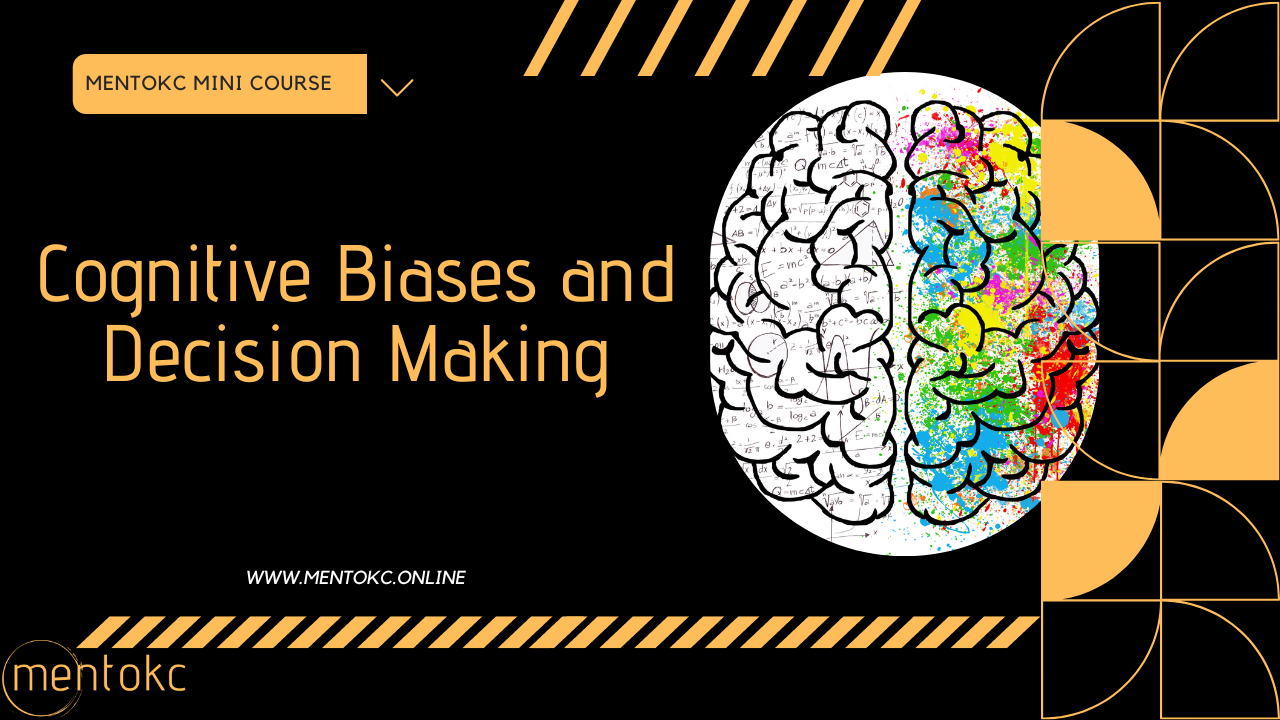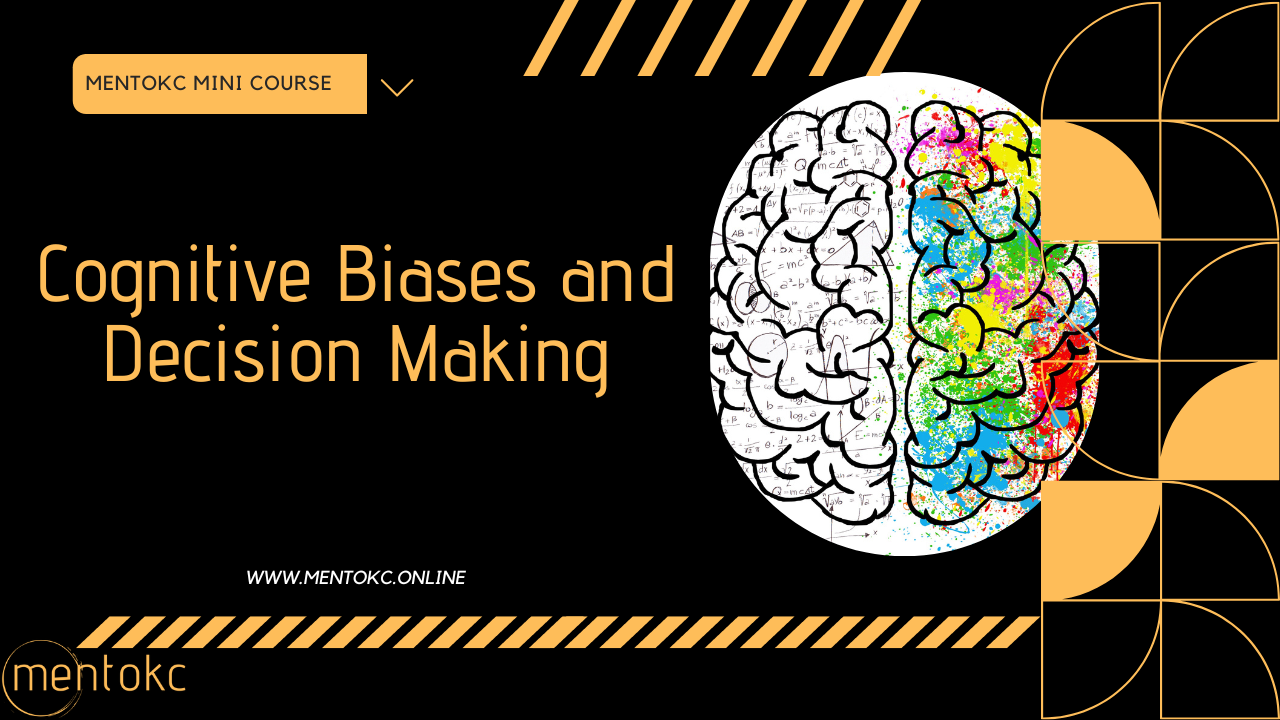
Become a Master Decision Maker with Our Cognitive Biases and Decision-Making Course!
Ready to sharpen your decision-making skills and deepen your understanding of the forces at play in the human mind? Our comprehensive course on Cognitive Biases and Decision Making will guide you on a fascinating exploration of the systematic errors in thinking that can subtly shape our judgments and choices - cognitive biases.
Our course delivers a perfect blend of psychological theory, real-world case studies, and practical strategies. You'll start by diving into the dual systems of human thinking, gaining insight into how our fast, intuitive responses (System 1) can lead us into cognitive traps, and how our slower, more deliberate thought processes (System 2) can help us avoid them.
You'll discover a range of common cognitive biases like confirmation bias, availability heuristic, anchoring bias, and hindsight bias. These biases often go unnoticed, yet they can powerfully influence our decisions and perceptions, affecting our personal and professional lives.
But understanding biases is only half the battle. That's why we'll equip you with an arsenal of techniques to identify and mitigate these biases. From promoting diversity of thought and utilising robust decision-making frameworks, to practicing mindfulness and embracing a culture of continuous learning, we'll ensure you're well-equipped to make rational and informed choices.
Throughout the course, we'll bring these concepts to life with compelling real-world applications, illuminating how cognitive biases can play out in personal and professional scenarios. But, the learning doesn't stop at the end of the course. We'll prepare you for a continuous journey of self-improvement and growth, empowering you to manage cognitive biases effectively in your life.
By the end of this course, you'll not only have gained valuable knowledge but also cultivated a mindset that embraces uncertainty and learns from mistakes - all key to making more informed, less biased decisions.
Join us on this enlightening journey and unlock the power of unbiased decision-making. Take control of your choices, professionally and personally, with our course on Cognitive Biases and Decision Making. Get started today!
What you'll learn
Define and Understand Cognitive Biases: Understand what cognitive biases are, their origin, and why they are a natural part of human cognition.
Identify Types of Cognitive Biases: Recognise common types of cognitive biases, such as confirmation bias, availability heuristic, anchoring bias, and hindsight bias, and understand how they affect our decision-making process.
Analyse the Impact of Cognitive Biases: Assess the implications of cognitive biases in real-world scenarios, both in personal and professional contexts, and how they can lead to suboptimal decisions.
Apply Strategies to Identify and Counter Cognitive Biases: Implement strategies such as self-awareness, diversity of thought, slow decision-making, and playing devil's advocate to identify and reduce the influence of cognitive biases.
Utilise Techniques for Reducing Cognitive Biases: Apply various techniques, including double-checking decisions, basing decisions on evidence, considering the opposite, seeking external perspectives, and continuous learning to minimise the effect of cognitive biases.
Practice Critical Thinking Skills: Develop critical thinking skills to analyse information objectively, question assumptions, build curiosity, and encourage open-mindedness as a means to counter cognitive biases.
Apply Knowledge in Real-world Scenarios: Apply the knowledge of cognitive biases and techniques to counter them in real-world personal and professional scenarios.
Develop a Continuous Learning Mindset: Understand the need for continuous learning and self-improvement to effectively recognise and manage cognitive biases.
Embrace Uncertainty: Recognise the role of uncertainty in decision-making and develop strategies to make informed decisions, even in situations of uncertainty.
Reflect and Learn from Mistakes: Understand the importance of learning from past decisions and mistakes as part of the journey to improve decision-making and reduce the influence of cognitive biases.
